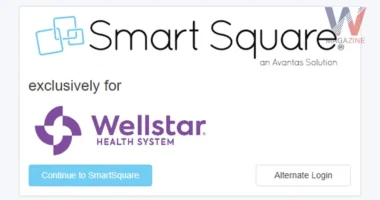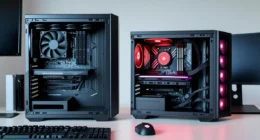Table of Contents
- What Is Hospital Coding?
- Why Hospital Coding Matters?
- Two Main Types: Inpatient vs Outpatient Coding
- Career Opportunities in Hospital Coding
- Challenges Coders Face
- Smart Fixes to Coding Problems
- The Role of Automation & AI
- How Coding Ties into Patient Care & Finance?
- A Roadmap for Hospital Coding Success
- Conclusion
Hospitals rely on coding every time a patient gets care. This isn’t about writing software, it’s about translating everything that happens, from diagnoses and treatments to tests and supplies, into standard codes. These codes feed into billing, record keeping, insurance claims, and even big-picture healthcare planning. Let’s break it all down in a way that makes sense to everyone.
What Is Hospital Coding?
Hospital coding is the method of converting everything documented in a patient’s visit, like symptoms, diagnoses, procedures, and even medications, into universal codes. These codes come from systems such as:
- ICD-10-CM & ICD-10-PCS: used for diagnoses and inpatient procedures.
- CPT & HCPCS: describe outpatient procedures, tests, and services.
- Charge capture: links services to the hospital’s price list.
Coders read clinical notes and pick the right codes. These help create insurance claims and support everything from billing to healthcare statistics.
Why Hospital Coding Matters?
- Ensures Accurate Bills: Wrong or missing codes mean hospitals earn less, or patients get overcharged. Accurate coding stops claim denials and slow reimbursements.
- Helps Doctors & Nurses: When patient histories are correctly coded, caregivers find and understand past care faster. That improves follow-up treatments.
- Drives Health Planning: Codes help public health officials see trends, like disease outbreaks or treatment effectiveness to make better decisions.
- Keeps Everyone Honest: Coding rules from CMS and private payers make sure hospitals don’t overcharge or bill for care that didn’t happen.
Two Main Types: Inpatient vs Outpatient Coding
- Inpatient (ICD-10-PCS): Covers care when a patient stays in the hospital. ICD-10-PCS provides detailed seven-character codes, over 70,000 of them!
- Outpatient/Emergency (CPT/HCPCS): Used for doctors’ visits, labs, scans, clinics, and emergency care.
Hospital coders often handle both outpatient and inpatient tasks, depending on how big the hospital is
Career Opportunities in Hospital Coding
If you’re considering working in healthcare without direct patient care, hospital coding offers great options.
Skills Needed:
- Understanding of medical terms and anatomy.
- Knowledge of coding systems (ICD-10, CPT, HCPCS).
- Attention to detail and accuracy.
- Computer literacy.
Certifications That Help:
- CPC (Certified Professional Coder) from AAPC.
- CCS (Certified Coding Specialist) from AHIMA.
- Other credentials for inpatient, outpatient, or specialty coding.
- Many coders work in hospitals, clinics, insurance firms, or remotely from home.
Salary Expectations:
According to U.S. data (2024 estimates):
- Entry-level coders earn around $45,000 to $55,000 annually.
- Experienced, certified coders can earn $65,000 to $85,000+.
- Specialized roles (e.g., inpatient coders) or coding auditors may earn higher.
- Salaries depend on location, experience, and certifications.
Challenges Coders Face
Hospital coding isn’t easy. Coders often run into:
- Constant Rule Changes: Hundreds of new codes are added yearly, and some are edited or removed.
- Missing or Confusing Notes: If doctors write unclearly, coders might guess. That can lead to denied claims or audit penalties.
- Unbundling & Modifier Errors: Rules like NCCI prevent coding overlapping services, but errors still happen.
- Staff Turnover: Training takes time. A high turnover makes hospitals struggle to stay up to date.
- Rushed Environments: Emergency care, especially in critical access or rural settings, adds pressure.
Smart Fixes to Coding Problems
Hospitals can improve coding accuracy by:
- Keeping Up with Updates: Stay tuned to ICD/CPT changes and CMS payer edits
- Clear Communication: Coders should ask doctors for clarification when needed. That saves billing headaches later.
- Use Tech Tools: Tools like CAC (computer-assisted coding) can speed up work. When used right, they boost accuracy by ~95%.
- Regular Audits: Hospitals should check coding quality regularly to catch and fix mistakes fast.
- Ongoing Training: Offer coders chances to learn and refresh their knowledge. Certifications (like AAPC, AHIMA) help enforce standards.
The Role of Automation & AI
More hospitals are using automation and AI to support coders:
- Computer-Assisted Coding (CAC): Scans notes, suggests codes. Human coders then edit and verify.
- AI & Machine Learning: Early systems, like BERT-based models, show promise in pulling ICD codes from notes, achieving ~85–90% accuracy.
- Autonomous Coding: Still being refined. The aim is to reduce manual work while keeping accuracy above ~95%.
Though machines help, they can’t replace humans; the nuance in clinical notes still needs trained eyes.
How Coding Ties into Patient Care & Finance?
Good coding benefits everyone. Hospitals with clean claims (98%+ accuracy) get paid faster and avoid audits. Patients get bills that match what they received. Plus, coded data helps improve care quality and safety.
A Roadmap for Hospital Coding Success
- Invest in Education: Provide coders access to AAPC, AHIMA, AHA Coding Clinic, and NHS qualifications if outside the U.S.
- Improve Documentation: Encourage concise, clear, and complete clinical notes.
- Adopt Coding Tools: Start with CAC and gradually add AI-powered assistant tools.
- Audit & Measure: Track clean claim rate, denial rate, turnaround time, and staff retention.
- Collaborate: Create a strong feedback loop between coders and providers to fix recurring issues.
Conclusion
Coding in hospitals is more than ticking boxes. It bridges healthcare delivery, finance, and analytics. When done right, accurate, compliant, and timely, it ensures hospitals get paid fairly, patients have clear billing, and the healthcare system becomes smarter and safer.









